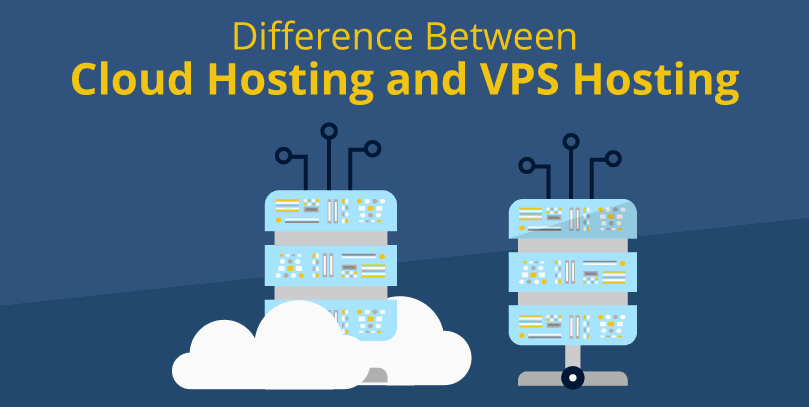
Every term on the internet is different and assigned for a definite purpose. Read here to learn the difference between .com and .net.
Likewise, if you are new to the terms – HTTP and WWW, then it is important to understand their meanings as both affect the browsing activity.
Both these terms are an intrinsic part of your website URL. Thus, you must know about the substantial difference between WWW and HTTP if you have a website.
What’s the Difference Between HTTP and WWW?
Most people get confused between HTTP and WWW. Even though they are a part of the website URL, they mean different things in the internet language. Both have specific roles to play in association with a website. However, both have their own set of pros and cons, which is the reason why website owners pick either one for their site. Thus, read here to learn more about the difference between HTTP and WWW.
1. What is HTTP?
HTTP is short for ‘hypertext transfer protocol’. It offers a set of limited rules that help to govern how information can transfer on the internet.
It provides set regulations for all servers in the web space to communicate by defining how you can format the message. It also describes how different browsers should take action in response to various commands.
HTTP is mainly an application layer network protocol that is built on the TCP. It uses the hypertext structure and text that helps to establish a logical link between nodes, which contains the text.
It’s also called a stateless protocol, wherein each command can execute separately without using references.The main difference between HTTP and WWW is; HTTP is a link and WWW is a web address.
HTTP protocol transfers data from one website to the other website and the design of HTTP facilitates easy access to WWW. The protocol also transfers data in different forms like – plain, audio, and video.
HTTP makes a rapid shift from one environment to another and from one document to another. The focus of HTTP is presenting the information, regardless of the way information travels from one place to another.
Want to build a website? Purchase hosting with these bigrock coupon code and get a discount!
1.1 Pros and Cons of HTTP
Pros of HTTP
- HTTP can be implemented with all networks or protocols on the internet.
- All web pages are stored on the internet caches or computer, so you'll be able to access them anytime. HTTP does not need any runtime support, so it does save your time.
- Complete platform independence allows for cross-platform porting.
- You'll use HTTP over firewalls which is its most significant advantage in terms of security.
- Global applications are indeed possible with HTTP. It is non-connected oriented, so you don't have to create overheads to maintain its information and session state.
Cons of HTTP
- The biggest disadvantage of HTTP is; it has privacy issues, so anyone can see the content and access pages.
- Data integrity is the biggest issue because people can make changes on the website or web page. That's the reason HTTP protocol is not as secure as HTTPS. There is no encryption in HTTP.
- For security reasons, most people prefer HTTPS over HTTP as it offers complete security encryption.
- There is also no clarity in communication at times, so any person who intercepts the request can get the username and password, which can pose an added threat.
2. What is WWW?
WWW is short for ‘World Wide Web’. It is a vast collection of websites stored on web servers that lets you connect to local computers via the internet.
The websites on WWW contain text pages, audio, videos, and digital images. The users can access these sites from any part of the world by using computers, tablets, or smartphones.
In simple terms, WWW enables the display of media and text into your primary devices. WWW connects to a web page that is the address, which you type in the address bar while searching for a website.
A web page works on a URL, which is an online address for users. A collection of the web page that belongs to a specific URL is the website. The World Wide Web is a massive network with pages stored on many servers across the world.
World Wide Web follows a hypertext link that lets you visit from one web page to another. Most small websites store their web pages on a shared server. More prominent websites store their web pages on a single server. Click here to know more about Shared hosting and Dedicated hosting.
2.2 Pros and cons of WWW
Pros of WWW
- You can access WWW from any location globally.
- It enables you to make online purchases and digital transactions from any location.
- You'll be able to communicate with people through chats, text, and emails.
- You'll be able to market and brand your product using the power of WWW as it gives you unlimited access to information on the internet.
Cons of WWW
- With easy access to information through WWW, there may be a potential risk of theft. There may be instances of cyberbullying. There is a use of cookies to collect customer information, which can invite spam.
- With WWW, the chance of fake news is higher. In some cases, a user may post your public information like name and phone number on the internet.
- The web includes all types of content, which includes content that may be inappropriate for some users.
- Device hacking is another disadvantage of WWW along with the risk of virus integration on exchange.
#HTTP vs. WWW in URLs
You’ll be able to remove HTTP or WWW from a URL. However, it depends on several factors and specifications. WWW is a prefix that indicates that a website is using HTTP to communicate. You also have the option of mixing different prefixes depending on your requirement.
Both give enough information to communicate with different browsers. In WWW, if you choose HTTP support, it will redirect you to the WWW page. When you type in WWW in the address bar, you will be automatically redirected towards the website.
To conclude,
HTTP is the general protocol that can transfer data. WWW is an identifier that indicates that you are on a website. But, WWW uses HTTP or HTTPS for the transfer of data or text.
Most websites have the HTTP protocol by default. A sub-domain can use a prefix that is non-reserved for a specific protocol as www.other.com and http://.other.com will lead to the same address.



Leave a Reply